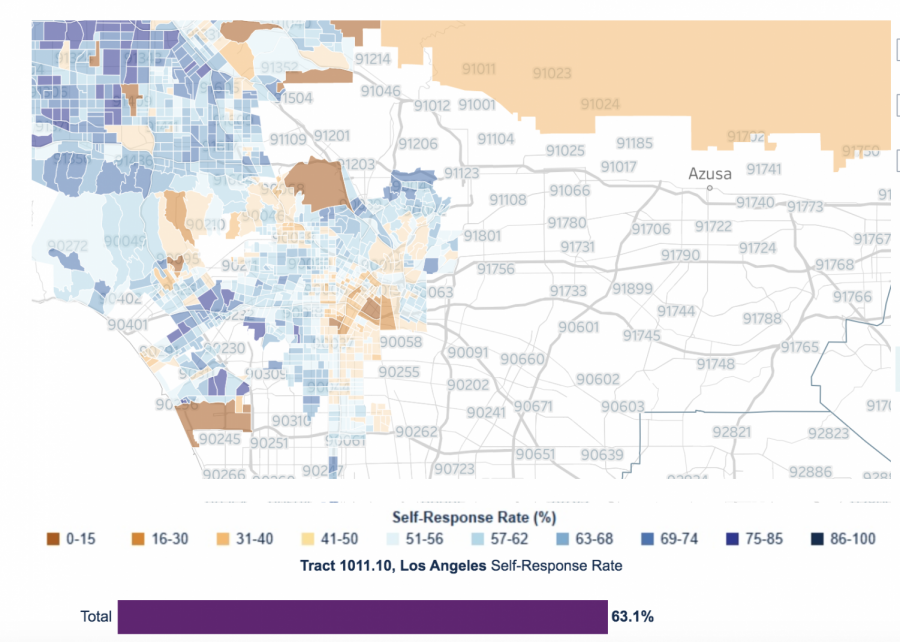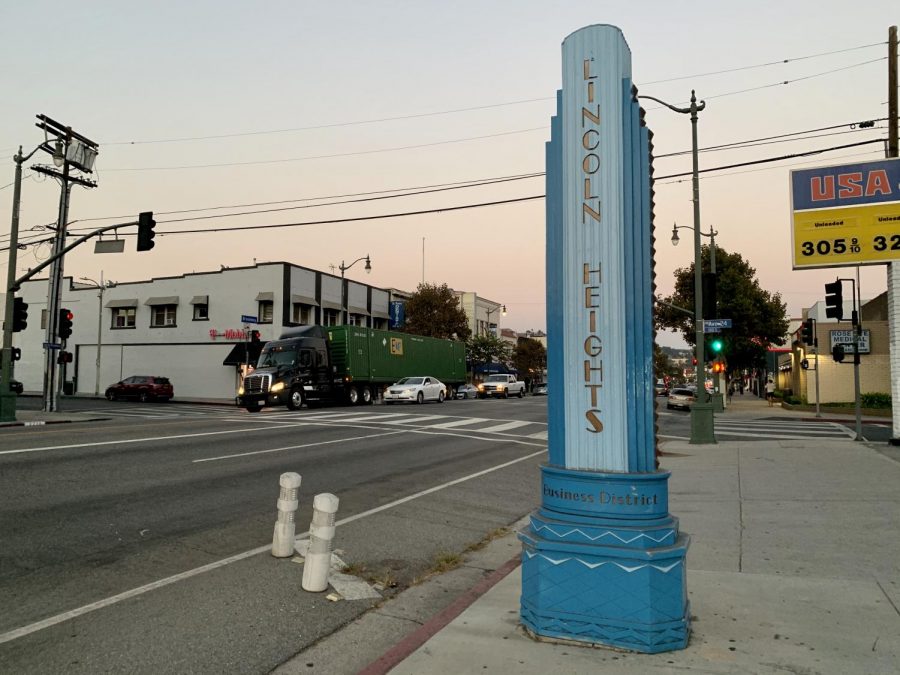Low-income neighborhoods with predominantly Latinx and immigrant families tend to be undercounted in the U.S. Census.
That’s because, experts say, people don’t realize the impact of the Census. Or they don’t have time between long work hours and child-rearing. Or they are afraid of reporting themselves because they are undocumented.
That means communities on the Eastside and in South Los Angeles are disproportionately affected.
Take Lincoln Heights. The median household income in the neighborhood was $33,700 in 2018, according to Statistics Atlas.
“Perhaps families are very concerned about their finances and can’t give their attention to the subject. But it could affect their quality of life,” said neighborhood organizer Gilbert Arevalo.
Lincoln Heights is made up of a few different census tracts with a 2020 Census response rate as of mid-October that ranged from 41 percent to 68 percent, according to the U.S. Census Bureau.

The Census Bureau reports that ethnic and racial minorities disproportionately live in “hard-to-count” areas and circumstances that make it so they are undercounted.
Ironically, these are also the communities that need the Census the most: They have the most to gain from the kind of government programs, services and assistance that is allocated based on Census counts.
In 2010, for instance, 1.5% of the Hispanic population was undercounted while non-Hispanic whites were over-counted by 0.8% that year, according to the U.S. Census Bureau.
When more people respond to the census, their communities receive more aid through federal funds and grants for schools, hospitals, roads, public works, and other essential programs, according to the agency.
Overall, participating in the census can improve the quality-of-life for communities, said Arevalo, who is a member of the Lincoln Heights neighborhood council — but he spoke as an individual, not for the council.
“I filled mine out as soon as I got it. However, I have been swamped with visits and calls” from Census representatives, Arevalo said. “In the calls, when I say I filled it out right away, I am told that’s the answer they always get. I believe that it shows a mistrust of the government. People are going to say that so they won’t be bothered.”
Lupe Moreno, another Lincoln Heights resident, shared the importance of participating in the census, since the lack of responses has impacted funding in her community.
“I completed my census earlier this year online,” she said. “I understand the importance of completing it and how it impacts the funding our communities obtains.”
She recognizes not everyone else does.
“Unfortunately, I believe we are underfunded as our community doesn’t fully participate in the census counts,” she said. “We are all adversely affected since we won’t get the full resources needed in our community to maintain us safe and operational.”
Underreporting can also affect jobs and the economy of an area since companies use census data to decide where to build factories, offices, and stores.
Developers can use the data to decide where to build new homes, which could revive old neighborhoods and local governments use it to make decisions about public safety and emergency preparedness, according to the agency.
Moreno pointed out that many residents of the Lincoln Heights community are immigrants, which could also affect the participation and census counts of the area: “We need to continue to educate our community and assist them in completing [the census] as we have many first-generation immigrants who may not fully understand the concept or because of their status in the country may be fearful of completing it.”







